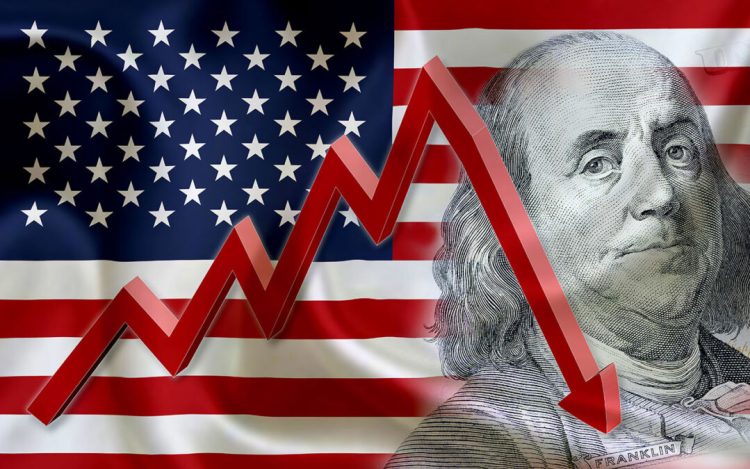Introduction
As we approach the tail end of 2024, the global economy finds itself in a precarious position, buffeted by a range of factors that threaten to tip it into a global recession. Economic slowdowns across key regions—namely Europe, China, and other major emerging markets—have sparked widespread fears that a global recession is not just a possibility but a looming certainty. From weak consumer demand and high inflation to supply chain disruptions and geopolitical tensions, the challenges facing the world’s economies are becoming more pronounced.
In particular, Wall Street’s big players—the banks, asset managers, and multinational corporations that drive much of the world’s financial markets—are being forced to adapt quickly to these shifting dynamics. But how prepared are these institutions to weather a global recession? Are they resilient enough to ride out economic storms, or are they vulnerable to the same market shocks that could send the global economy into a prolonged downturn?
In this article, we will explore the current global economic conditions, the specific recession fears in major economies like the U.S., and how corporate earnings and market sentiment are shaping Wall Street’s response to these challenges. We will also assess whether the world’s largest financial institutions have the strength and adaptability to withstand a global recession, or if the fears of an impending downturn are overstated. Finally, we will discuss the economic forecast, considering both the pessimistic and optimistic perspectives on whether a recession is truly inevitable.
The U.S. Economy: How Recession Fears Are Affecting Growth Prospects in the U.S.
- Slowing Growth:
The U.S. economy, which has historically been a stabilizing force in the global financial system, is not immune to the risks of a global slowdown. As inflation remains persistently high, the Federal Reserve has been on an aggressive interest rate-hiking spree in an attempt to curb rising prices. This has created a tight financial environment, putting pressure on both consumers and businesses. Mortgage rates are at their highest in decades, making homeownership increasingly unaffordable for many Americans. At the same time, borrowing costs are rising for businesses that rely on credit to finance expansion or investment.- Consumer Spending: In a consumer-driven economy like the U.S., weak consumer spending can trigger a cascading effect that leads to further economic slowdowns. Higher interest rates dampen demand for durable goods, real estate, and services. As inflation erodes purchasing power, American consumers may tighten their belts, further exacerbating the risks of a recession.
- Labor Market: The U.S. labor market has remained surprisingly strong despite recession fears, with unemployment rates staying near historic lows. However, fears of job cuts and wage stagnation are growing. Corporate America is facing increased pressure to balance higher labor costs with tightening margins, and some sectors—such as tech—are already witnessing layoffs, which may become more widespread in the event of a downturn.
- Financial Markets and Investor Sentiment:
Financial markets in the U.S. have been volatile in recent months, with sharp corrections in major indices like the S&P 500 and NASDAQ. As recession fears continue to dominate headlines, investors are becoming more risk-averse, fleeing equities and moving into safer assets like gold and government bonds. This has led to increasing demand for defensive stocks, such as consumer staples, utilities, and healthcare, while riskier growth stocks, particularly in the tech and consumer discretionary sectors, have faced downward pressure.- Capital Markets: For Wall Street’s big players—especially investment banks like Goldman Sachs and JPMorgan Chase—volatility can be both a boon and a bane. While these institutions profit from trading activities and advisory services, they also face risks from global market instability and declining deal-making activity. The slowdown in IPOs and mergers and acquisitions (M&A) has already had an impact on investment banks’ bottom lines.

Corporate Earnings: How Big Firms Are Navigating Uncertain Economic Conditions
- Profit Margins Under Pressure:
The earnings reports from U.S. multinational corporations have started to show signs of strain as the global economy enters a period of uncertainty. Companies in cyclical sectors such as automotive, consumer electronics, and retail are particularly vulnerable to demand shocks, as they tend to rely on strong consumer spending. Many companies are seeing shrinking profit margins as input costs rise due to inflation and supply chain disruptions.- Cost-Cutting Measures: In response to these pressures, corporate America is adopting various cost-cutting strategies. Many firms are focusing on streamlining operations, automating processes, and reducing workforce sizes. While these moves may help protect short-term profitability, they may also erode long-term growth potential by limiting innovation and cutting critical investments in research and development.
- Diversification and Resilience:
While some industries are struggling, others—especially those focused on technology, healthcare, and renewable energy—continue to show resilience. Companies like Apple, Microsoft, and Tesla are less sensitive to economic slowdowns, as they have successfully diversified their revenue streams. Tech firms are capitalizing on trends like cloud computing, AI, and renewable energy, while healthcare companies are benefiting from aging populations and the ongoing demand for medical advancements. These sectors are likely to continue performing well, even in a recessionary environment.- Geopolitical Risks: Another factor at play is the ongoing geopolitical instability, particularly the trade war between the U.S. and China, the Russia-Ukraine conflict, and the ramifications of Brexit. For Wall Street’s biggest players, navigating these geopolitical risks is a balancing act. Multinational companies with global supply chains are particularly vulnerable to these tensions, as tariffs, sanctions, and disruptions in international trade can further affect their earnings. Companies are increasingly looking to diversify their operations and reduce reliance on any single region to shield themselves from such risks.
Resilience or Vulnerability?: Can Wall Street Giants Withstand a Global Recession?
- Capital Reserves and Liquidity:
One of the main reasons Wall Street’s big players are often seen as more resilient to economic shocks is their size and capital reserves. Large financial institutions and corporations have the financial buffers necessary to withstand downturns. U.S. investment banks, for instance, maintain sizable cash reserves and are well-regulated by the Federal Reserve. In the event of a downturn, they can tap into these reserves to meet short-term obligations or to seize new opportunities that arise during a market correction.- Bank Stress Tests: The Federal Reserve conducts annual stress tests on major U.S. banks to ensure they can weather significant financial shocks. These stress tests have proven effective in preparing institutions for economic downturns, as they force banks to plan for worst-case scenarios, including a severe recession or a financial crisis. The results of these tests, however, depend on the accuracy of the assumptions made about the economic conditions, which can sometimes be overly optimistic.
- Technological Adaptability:
Wall Street’s largest players are also benefiting from their increasing reliance on technology. Financial institutions have invested heavily in fintech innovations, including AI, blockchain, and automation, which not only improve efficiency but also allow them to adapt to changing market conditions more quickly. This adaptability will be key if the global economy slips into recession, as companies that embrace technology will be better positioned to manage operational challenges and reduce costs. - Investor Sentiment and Market Psychology:
While Wall Street’s big players have the financial strength to endure a recession, investor sentiment and market psychology are harder to predict. If widespread fear and panic set in, even the largest institutions may face declines in stock prices and profitability. During periods of recession, market participants often prioritize short-term risk aversion, selling off equities and bonds to protect their capital. This can exacerbate the downturn, leading to a vicious cycle of declining asset prices and lower economic activity.
Forecast: Is a Recession Inevitable, or Are Fears Overstated?
- Pessimistic Scenario:
Given the current global economic conditions, it is difficult to ignore the mounting recession fears. With inflation still elevated, geopolitical risks high, and consumer sentiment declining, it seems likely that the U.S. and other major economies will continue to face significant headwinds in 2025. If these pressures persist, a global recession could be inevitable, potentially triggered by a combination of factors such as rising interest rates, continued trade tensions, or financial contagion from struggling economies like China. - Optimistic Scenario:
On the other hand, the global economy has shown remarkable resilience in the past, and the fears of an impending recession may prove to be overstated. The U.S. labor market remains robust, technology companies continue to innovate, and renewable energy investments are expanding rapidly. Moreover, central banks and governments have the tools to mitigate the impact of a recession, including monetary stimulus, fiscal policy interventions, and global trade agreements. With these levers in place, a global recession may be avoided, or at least mitigated, by the combined efforts of governments, corporations, and financial institutions.
Conclusion
The fear of a global recession in 2025 is certainly real, but it may not be inevitable. While the challenges facing the global economy are significant, Wall Street’s big players are better prepared than ever to handle economic volatility. With robust capital reserves, diversification, and technological innovation, major corporations and financial institutions have the tools to navigate even the most severe downturns. However, much depends on how geopolitical and macroeconomic conditions evolve over the next few months. If a global recession does occur, it will likely hit some sectors harder than others, with corporate earnings likely to take a hit across the board. Ultimately, the future will depend on the ability of both the private sector and governments to respond to these challenges in a measured and strategic way.






























